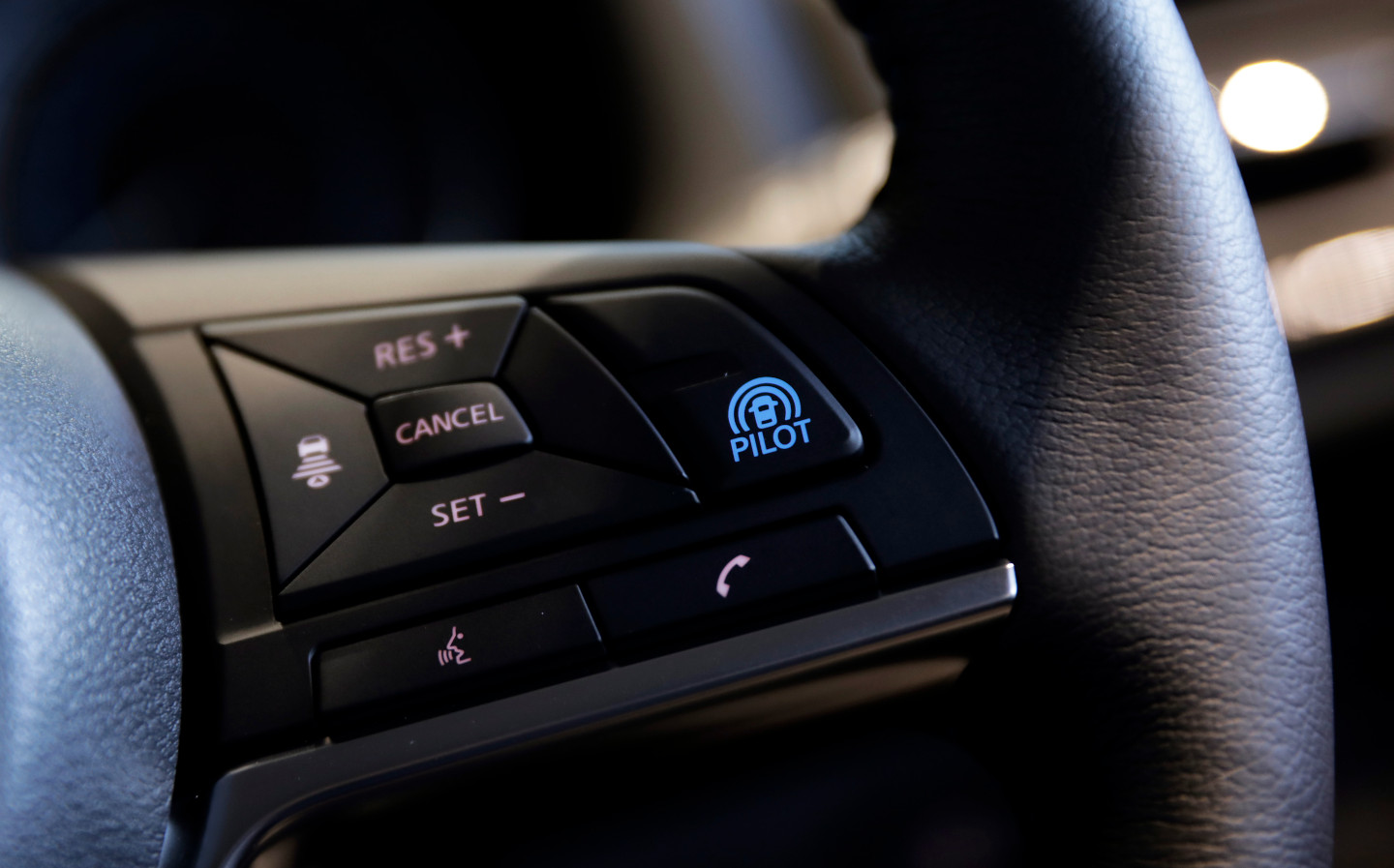UK government takes another step towards legalising autonomous driving
Tech could be on UK roads by next spring
THE GOVERNMENT has published a call for evidence regarding lane-keeping technology, a step forward in the UK’s legal acceptance of autonomous driving devices.
The call for evidence (essentially a formalised gathering of views) specifically regards Automated Lane Keeping Systems (Alks), which are designed to take over a car at low speeds on motorways for extended periods of time.
The driver must still be ready to take over control of the car whenever necessary. When the driver is required to take the wheel, the Alks issues a “transition demand”, before a series of escalating warnings occur until manual control is in place. If the driver does not take over after the series of warnings, the car will perform a minimum risk manoeuvre to bring the vehicle to a safe stop.
The issue of having the driver on standby has been one that has plagued the use of assisted driving technology in other countries. In the United States, Tesla, the company arguably most associated with such technology, has found itself in trouble in this regard, with the country’s National Transport Safety Board finding the “Autopilot system’s limitations” partially at fault for a fatal 2018 crash in Los Angeles. The driver of the car was found to be playing a video game at the time of the crash, and Tesla confirmed that he had ignored several warnings to take control of the car.
In the UK, Tesla cars do come with the option of Autopilot capabilities, but the law currently requires drivers to stay in control of the vehicle at all times. In the same year as the crash in L.A., the British owner of a Tesla Model S was prosecuted after he was caught on video sitting in the passenger seat of his car while Autopilot functions were activated. Tesla pointed out that Autopilot was a “suite of driver assistance features” intended to provide aid to a “fully-attentive driver”.
Industry experts and insiders are being consulted by the Department for Transport, therefore, about the proposed rules that would govern the use of Alks. Other consultations include whether or not a car using the technology should be defined as an “autonomous vehicle”, and on whom the burden of the safety of the driver falls when the system is engaged — the driver themselves, or the car maker.
Alks technology was approved by the United Nations Economic Commission for Europe (Unece), of which the UK is a member, back in June. This means that we are likely to see the technology legalised on UK roads by spring next year, when the Law Commission for England and Wales and the Scottish Law Commission conclude their three-year review into road transport legislation.
Transport Minister Rachel Maclean said: “Automated technology could make driving safer, smoother and easier for motorists and the UK should be the first country to see these benefits, attracting manufacturers to develop and test new technologies.”
“The UK’s work in this area is world leading and the results from this Call for Evidence could be a significant step forward for this exciting technology.”
The UK has always been adamant about its intention to be a global leader on autonomous driving technology. The government has established a dedicated department, the Centre for Connected and Autonomous Vehicles, and in 2018 the Automated and Electric Vehicles Act was signed into law, which established foundational rules including insurer liability.
Industry experts have also weighed in on the matter. Mike Hawes, SMMT Chief Executive, said: “Automated technologies for vehicles, of which automated lane keeping is the latest, will be life-changing, making our journeys safer and smoother than ever before and helping prevent some 47,000 serious accidents and save 3,900 lives over the next decade.
“This advanced technology is ready for roll out in new models from as early as 2021, so today’s announcement is a welcome step in preparing the UK for its use, so we can be among the first to grasp the benefits of this road safety revolution.”
Tweet to @KieranAhuja Follow @KieranAhuja
Advanced self-driving car trials held back by potholes and poor 4G coverage





